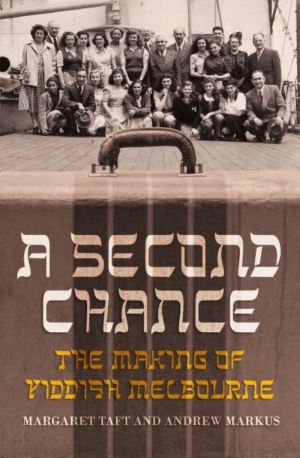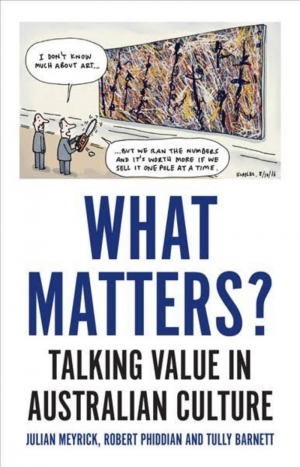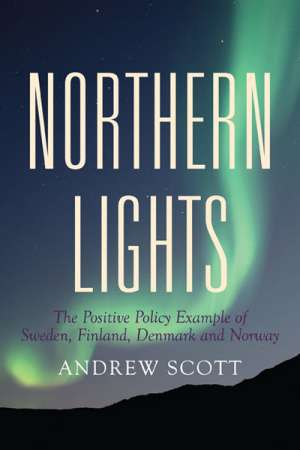Monash University Publishing
Desley Deacon reviews Seven Big Australians: Adventures with comic actors by Anne Pender
Nowadays every second young person seems to want to be a stand-up comic, an occupation that perfectly represents the ‘gig’ economy in its precariousness and occasional nature. Anne Pender gives us mini-biographies of seven Australians who succeeded, often spectacularly, in the risky business of being a comic long ...
... (read more)To complement our ‘Books of the Year’ feature, which appeared in the December 2018 issue, we invited some senior publishers to nominate their favourite books of 2018 – all published by other companies.
... (read more)Tali Lavi reviews 'A Second Chance: The making of Yiddish Melbourne' by Margaret Taft and Andrew Markus
In my childhood home, Yiddish prompted a frisson of the suppressed. This was a direct consequence of adults speaking it whenever they did not want us children to understand. Yiddish was the language in which jokes, clever and sometimes ribald, worked. When attempting to translate, inevitably my grandmother would shrug ...
... (read more)Brian Matthews reviews 'Half the Perfect World' by Paul Genoni and Tanya Dalziell
In August 1964, Charmian Clift returned to Australia from the Greek island of Hydra after nearly fourteen years abroad. As Paul Genoni and Tanya Dalziell portray her return – a description based, as always in this book, on solid or at least reasonably persuasive evidence – she ‘was leaving her beloved Hydra ...
... (read more)Gabriella Coslovich reviews 'What Matters? Talking value in Australian Culture' by Julian Meyrick, Robert Phiddian, and Tully Barnett
As I sat down to write this review, a media release popped into my email inbox with the excited news that more than 400,000 people had visited the National Gallery of Victoria’s MoMA exhibition over its four-month duration, making it the NGV’s ‘second most attended ticketed exhibition on record ...
... (read more)David Brophy reviews 'Island Off the Coast of Asia' by Clinton Fernandes
Marise Payne’s recent speech to the United Nations General Assembly touted Australia’s support for ‘rules’ and ‘international law’ in creating a global order that works ‘for the benefit of all nations and people’. But are these really the guiding principles of Australian foreign policy ...
... (read more)Dennis Altman reviews 'Northern Lights: The positive policy example of Sweden, Finland, Denmark, and Norway' by Andrew Scott
As Andrew Scott points out, Australians have a limited and very clichéd knowledge of the Nordic countries. Recently, we have come to appreciate Scandinavia for its bleak police dramas, of which The Girl with the Dragon Tattoo is probably the best known. For the right, Scandinavia has long represented socialist excess, which merges with vague notions of unlimited sexuality. The reality is that Sweden, at least, has adopted some laws around sex work and sex venues which are far more stringent than those in Australia. For the left, the Scandinavian nations have represented the hope of a liberal democratic egalitarianism, with taxation and welfare policies that are far more successful than ours.
... (read more)James McNamara reviews 'Political Animal: Gore Vidal on Power' by Heather Neilson
American writer Gore Vidal was an intimate of political power. His grandfather was a US senator; his father served as Franklin D. Roosevelt’s Director of Air Commerce. When his mother remarried, to Hugh Auchincloss, Vidal obtained a descendant of Vice President Aaron Burr as a stepfather ...
... (read more)The last photographs taken of Jean Galbraith show a wrinkled woman in her eighties, with wispy hair pulled back in a bun, wearing round tortoiseshell spectacles, thick stockings, and sensible shoes – the kind of person you might expect to see serving behind the counter of a country post office early last century, or pouring endless cups of tea at church fêtes. Yet her unprepossessing appearance belied the extraordinary woman within. For Australian nature lovers and botanists, Jean Galbraith was an icon. Over the seventy years of her writing career (her last article was published when she was eighty-nine), she turned botanical writing into an art form, branched into television and radio scriptwriting, wrote children’s books, lectured tirelessly on the beauty of Australia’s native flora, and became a fierce advocate for conservation. When she died in 1999, aged ninety-two, she had earned many awards and accolades, including the prestigious Australian Natural History Medallion.
... (read more)Jean Curthoys reviews 'A Sense for Humanity: The ethical thought of Raimond Gaita' edited by Craig Taylor with Melinda Graeffe
Raimond Gaita is unusual among moral philosophers in having presented the world of his childhood as food for thought. Most notably, he has given us his Romanian father, Romulus – ‘Johnny the Balt’ to his Australian neighbours – whose understanding of life’s moral necessities is articulated by Gaita as the core of his ethical thought. It is hard to think of an instance in the history of Western philosophy, other than the Socrates of Plato’s Apology, where an individual’s life story is as intrinsic to the views expounded as the life of Romulus Gaita is to those of his son.
... (read more)









